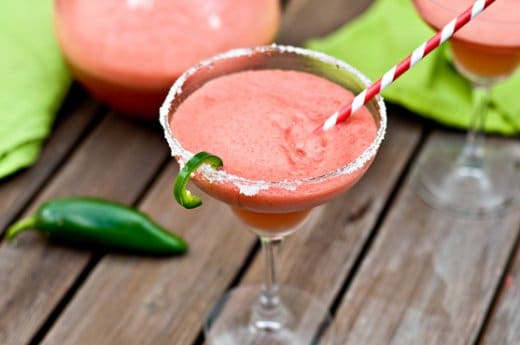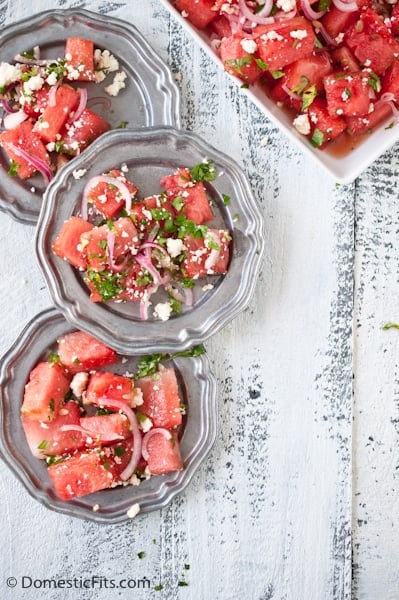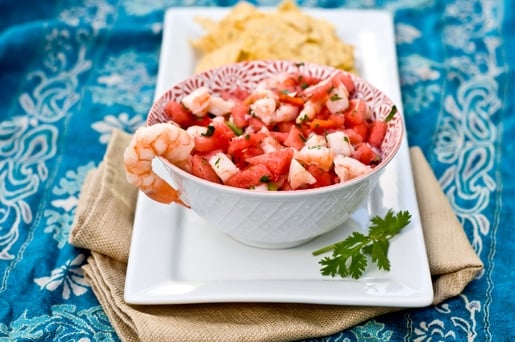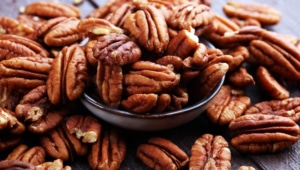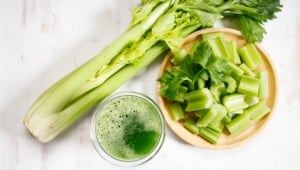6 Benefits of Watermelon & Best Tips on Purchase and Use
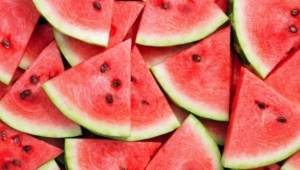
Watermelons, as the name implies, are made up largely of water. That’s why they’re so refreshing, especially in the summer. Here you’ll see that they are not only delicious but also have a lot of health benefits. Here we have gathered the health benefits of watermelon and also its possible side effects. We’ve also got tips on how to use and purchase watermelons. Not only that, but there are some quirky and fun watermelon facts for you here as well. For example, much more of the watermelon is edible than you probably think.
Interesting Facts about Watermelon

Interesting Facts about Watermelon
Watermelon is one of the most popular summer fruits — whether in a salad, as a snack, or even grilled. Following are some of the most interesting facts about these familiar fruits.
First, not everyone thinks of watermelon as fruit. Botanists classify watermelons as fruits, and they’re prepared as eaten as fruits. But there’s some space for interpretation in these classifications. Watermelons are part of the genus cucurbita along with gourds, pumpkins,and squashes. The latter are also botanical fruits, but are prepared, grown, and served as vegetables. Like them, watermelons are also grown using vegetable crop techniques, and the state of Oklahoma has even named watermelon as the state vegetable.
Did you know there is a gigantic watermelon in the Guinness Book of Records? It weighed a whopping 2,702 lb 13.9 oz (159 kilograms). For comparison, typical watermelons in stores weigh between 4 and 33 pounds (between 2 and 15 kilos).
Watermelons as Pest
In areas where watermelons are grown, they can get out of controlled environments quite easily. They then simply grow in the wild, where they also produce fruit. Then, like any familiar weed, they can wind up growing vigorously in places where they are not wanted.
In some parts of Australia, watermelons have become so widespread that they are considered a downright pest. While watermelons do grow in a spreading way and take up a lot of space, watermelon as a weed is something that sounds strange to many of us in the United States. But in parts of Europe including Austria, and even on the American continent — in Mexico — there are some instances of feral watermelons.
Not All Watermelons Are Delicious

Not All Watermelons Are Delicious
The watermelons that you can buy in this country are suitable for direct consumption. They are sweet, refreshing and juicy. However, this is not the case with all varieties.
For example, there are subspecies that are so bitter that they cannot be eaten. On the other hand, the seeds of these varieties are rich and edible. So these subspecies are grown only for the use of the seeds.
Seeds of Different Colors
We mainly know watermelons with brown seeds, sometimes white. But there are also varieties that have green, red or orange seeds. In terms of shape and size, they are more reminiscent of pumpkin seeds.
Edible Peel and Seeds

Edible Peel and Seeds
Usually, we consume only the red (or even yellow) flesh of watermelons. The rest goes into the trash, and that is a great pity. You can also eat the seeds and the skin of the watermelon, wasting nothing.
The seeds contain many vitamins and minerals as well as unsaturated fatty acids. You can just eat them (chew them thoroughly) or collect them, roast them and use them as a topping for salads or cereals.
The rind of the melon contains satiating fiber and valuable amino acids. If you want to eat them, you should buy untreated watermelons from organic farming. Otherwise they contain too many chemicals.
If you don’t like the rind, you can grate it into your salad. Or you can use it as a tasty and vitamin-rich ingredient in a smoothie.
Nutritional Facts and Calories

Nutritional Facts and Calories
Watermelons are very low in calories: 3.5 ounces (100 grams) of melon have only 30 calories. The reason for this is the high water content: over 90 percent of the fruit flesh consists entirely of water.
Take a look at the table below to find out more about the minerals and vitamins of watermelons.
| Components | Watermelon, raw (100 grams) |
|---|---|
| Calories | 30 kcal |
| Water | 91.45 g |
| Total Fat | 0.2 g |
| Total Carbohydrate | 7.6 g |
| Dietary Fiber | 0.4 g |
| Sugar | 6.2 g |
| Protein | 0.6 g |
| Minerals | |
| Calcium | 7 mg |
| Fluroide | 1.5 mcg |
| Iron | 0.24 mg |
| Magnesium | 10 mg |
| Phosphorus | 11 mg |
| Potassium | 112 mg |
| Sodium | 1 mg |
| Zinc | 0.10 mg |
| Vitamins | |
| Vitamin A | 28 mcg |
| Lycopene | 4532 mcg |
| Vitamin B1 | 0.033 mg |
| Vitamin B2 | 0.021 mg |
| Vitamin B3 | 0.178 mg |
| Vitamin C | 8.1 mg |
Health Benefits of Watermelon

Health Benefits of Watermelon
Besides water and sugar, watermelon naturally contains many other substances.
As you have seen in the table above, watermelons are rich in various vitamins, minerals, and useful nutrients. Watermelon is very healthy!
In order to learn how the specific ingredients of watermelon benefit your health and physical processes, read on.
Following the benefits, you’ll find out what side effects there can be and whether dogs can also eat watermelon.
Health Benefits of Watermelon for Your Immune System

Health Benefits of Watermelon for Your Immune System
Watermelons contain lycopene, a phytochemical known primarily from tomatoes. Lycopene is a powerful antioxidant. Which means it can scavenge free radicals.
Free radicals are produced by environmental influences and metabolic processes in the body. They are special chemical compounds that lack an electron. They snatch this electron from other molecules.
The problem with this is that cells that lose electrons suffer great damage and can even die. So if there are too many free radicals in the body, cell damage, aging processes and in extreme cases, even cancer can occur.
This is where antioxidants like lycopene become important. They provide electrons to the free radicals on their own and thus render them harmless. This protects the cells and help the immune system.
Watermelon Benefits Your Skin, Hair and Eyes

Watermelon Benefits Your Skin, Hair and Eyes
Watermelon contains carotenoids, a form of vitamin A. This vitamin is also called retinol and is an ingredient in many cosmetic products for its benefits to skin.
Namely, vitamin A is important for the healthy structure of skin and helps it retain beauty. In addition, the vitamin can strengthen hair and even promote vision.
And finally, vitamin A also has antioxidant effects and is therefore good for the health of the cells. Watermelons contain about ten times as much vitamin A as apples, for example.
How Eating Watermelon Benefits Your Blood Pressure
The mineral potassium, contained in watermelons, is important for heart health. It helps carry signals from the heart and muscles. This makes potassium very important for regulating blood pressure and heart function.
Muscles also need enough potassium to function well. In addition, this substance helps the body regulate its acid-base balance.
Benefits of Watermelon for Men’s Sexual Health

Benefits of Watermelon for Men’s Sexual Health
Citrulline is an amino acid found primarily in the white flesh under the rind of watermelon. This is one of the richest sources of citrulline available in our foods. So it may be worth eating the white bits along with the red.
Citrulline facilitates blood flow and dilates blood vessels, benefits your heart health.
But not only that! Good blood circulation is also necessary for the maintenance of male potency. So watermelons not only have a health benefit for your heart, but also for your sexual health.
Health Benefits of Watermelon for Pregnant Women

Health Benefits of Watermelon for Women
For women, the consumption of watermelon is especially recommended during pregnancy.
Watermelon can relieve both heartburn and morning sickness, common conditions during pregnancy.
In addition, the minerals in watermelon help prevent muscle cramps. These usually occur in the third trimester.
How Watermelon Benefits Weight Loss
Watermelons have a high water content. So, it satiates and refreshes without providing many calories. So it’s no wonder that watermelon is also considered a good food for diets. In fact, there’s even a diet know as the a watermelon diet.
As healthy as watermelons are, you obviously need many other foods to stay healthy. As a supplement to a low-calorie, healthy diet, watermelons are wonderfully suitable.
Side Effects of Watermelon

Side Effects of Watermelon
Watermelons have little acidity. This accounts for their mild and sweet taste. However, it also makes the fruit less resistant to pathogens.
Therefore, cut melons can contain dangerous germs if stored incorrectly. Listeria, salmonella or even EHEC are possible. Make sure that you always store cut watermelons in a cool place and eat them quickly.
Pregnant women, young children, seniors and sick people should not eat melons that have been stored cut open at room temperature for several hours.
Can Dogs Eat Watermelon?

Can Dogs Eat Watermelon?
Many dogs like to try the fruits and vegetables that their humans eat. And some develop a real fondness for certain varieties. However, dogs can’t tolerate everything that humans can eat. So, what about watermelon?
The flesh of watermelon is safe for dogs. If your dog likes it, he’s welcome to snack on it. The vitamins and minerals benefit the dog’s body.
However, the rind and seeds can harm them. The seeds are hard to digest and can cause intestinal obstruction in the worst case. And the peel often contains pesticides.
So you should cut off the rind and remove the seeds before giving your dog the melon to eat. Also be aware that large amounts of watermelon can stimulate dogs' digestion, causing diarrhea.
Conclusion: Is Watermelon Good for You?

Is Watermelon Good for You?
In conclusion, watermelon has a lot of health benefits.
Vitamin A strengthens your skin and hair and is also very important for your eyesight. Lycopene as an antioxidant boosts your immune system and protects your cells from damage.
Your heart also benefits from eating watermelon. The potassium content helps regulate your blood pressure and also strengthens your muscles. Potassium also helps your body regulate its acid-base balance.
Due to its low calories, watermelon is also good for weight loss. For men, eating watermelon can even benefit their sexual health and strengthen their potency.
Women especially benefit from the advantages of watermelon during pregnancy. They can counteract or alleviate unpleasant symptoms and accompanying symptoms through consumption. Watermelon, when seeded and with the rind removed, is even beneficial for dogs.
All in all, the question of whether watermelon is good for you can only be answered with a yes.
Tips on the Purchase and Use of Watermelons

Tips on the Purchase and Use of Watermelons
Watermelons are very suitable for picnics and as a sweet snack on trips.
But how do you select a ripe watermelon? Below, you can find tips on how to pick the best watermelon in the supermarket.
Also, we’ll give you some advice on what watermelon is good for and how you can use and prepare it.
How to Pick the Best Watermelon
It’s not easy at first to tell from the outside if a watermelon is really ripe. These tips will help:
- Many watermelons have a yellow spot. This indicates where they touched the ground when ripening. A visible yellow spot indicates ripeness. However, if the yellow color too developed, the melon may be overripe.
- If you tap the melon with your knuckle, you will hear a dark, hollow sound when the fruit is ripe. Unripe watermelons, on the other hand, make almost no sound. With a little experience, you can come to easily recognize the sound of ripeness.
- The weight can also inform your choice: Ripe melons are heavier than unripe melons of the same size.
What is Watermelon Good for?

What is Watermelon Good for?
The use of watermelons is very versatile. You can of course just nibble them raw or cut them into a delicious fruit salad. But watermelons also taste good in combination with salty things.
For example, feta, ham, onions and olives harmonize wonderfully with watermelon. These ingredients make a delicious fresh summer salad.
Another idea is to grill watermelon. Put quartered slices on the grill and let them brown on both sides. You can eat grilled watermelon as a dessert or combine it with ham, feta or mozzarella.
Relatives and Types of Watermelon

Relatives and Types of Watermelon
Watermelon belongs to the cucurbit family. This family is large and includes many different types of melons and squash.
Cucumbers, zucchinis and gourds are also members of the cucurbit family. In total, this family includes about 800 plant species with many thousands of varieties.
In addition to watermelons, there are several types of sugar melons. Among them are the honeydew melon, the galia melon and the cantaloupe melon. They contain more sugar than the watermelon.
However, the types of melons are not as closely related as one might think: Sugar melons have their closest relatives among cucumbers.
Square Watermelons

Square Watermelons
Watermelons have a round or oval shape. But this is too common for some sellers: In some places, especially in Japan, you can find cube-shaped watermelons in supermarkets.
To do this, growers lock the melons into glass molds while they are still small. They take on the shape of the shell and become square as they grow.
The main reason for this unusual trend is practical: Square watermelons are much easier to stack and thus more space-saving and safer to transport. And they also find space in the refrigerator more easily.
Square melons have generated some real hype. Because the idea of square watermelons is patented, only a few hundred cube-shaped watermelons are grown each year. This makes the melons more expensive.
Yellow Watermelon

Yellow Watermelon
Watermelon comes in many varieties. About 3,000 different varieties are known, of which about 1,200 are still used today. The varieties differ in size, shape, taste and also in the color of the flesh.
Most varieties sold in this country have red flesh. However, there are also some varieties with yellow flesh. These are sometimes called pineapple melons because of the bright yellow color.
Yellow-fleshed watermelons were created by crossing different varieties of melons. They contain fewer seeds and more flesh than red varieties. So if seeds in melon bother you, you’ll love the yellow varieties.
Otherwise, there’s little difference between red and yellow watermelons. They taste very similar and also have about the same nutritional values and ingredients.
Yellow watermelons are definitely something visually special. They look great in a fruit salad or on a buffet, for example, and are sure to surprise your family or guests.
